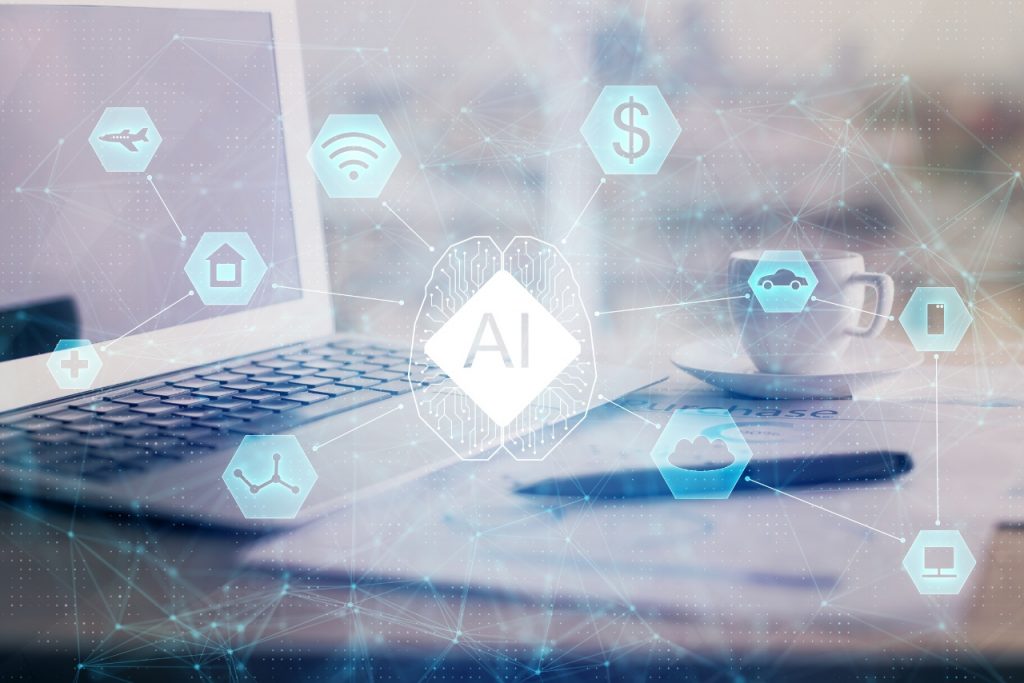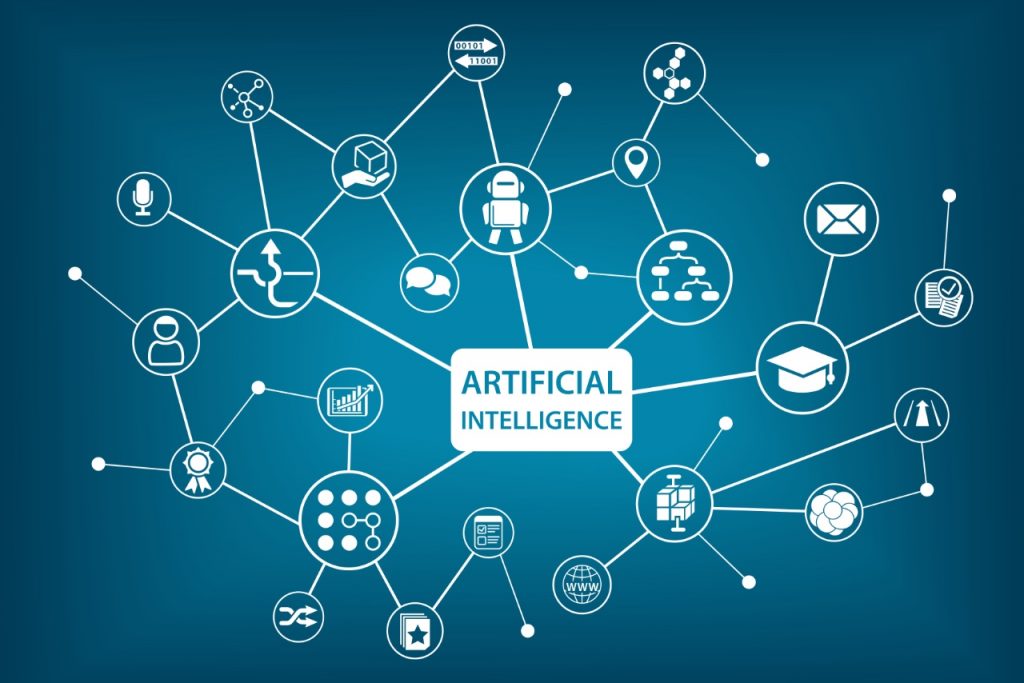After all, artificial intelligence statistics show that by 2021, AI will form the basis for 80% of emerging technology. So, how will the rise of AI affect the world of technology? Has Coronavirus accelerated the timeframe? Is 2021 the year that we finally get to realize AI’s potential? Let’s find out.
What Is Artificial Intelligence?
Before we get to the trends, we need to make sure that we’re on the same page about artificial intelligence. First off, there is a difference between robotics and artificial intelligence. The androids that we see in sci-fi movies incorporate artificial intelligence software. They’re not one of the types of artificial intelligence; they merely utilize it. Examples of artificial intelligence include search engine algorithms and accounting software that automatically matches payments to client invoices.
AI: Trends and Predictions for 2021
Now that we’ve got ideas of robot servants out of the way, let’s look at what the artificial intelligence future holds. It’s clear that companies have embraced the benefits of artificial intelligence. We’re seeing increasingly sophisticated artificial intelligence examples and integrations coming through. There’s been an increasing need for trained personnel to fill artificial intelligence jobs.
What Can We Expect in 2021?
Better Big Data Analytics
If Covid-19 has been good for anything, it’s shown us that we need robust systems to analyze big data more effectively. In a bid to stop the pandemic in 2020, researchers, government, and industry have worked together to develop robust data analysis and predictive tools. They’ve developed an AI-based search engine that incorporates natural language processing (NLP) algorithms to help researchers search through the mountain of Covid-19 data. We may expect more specialized AI tools to deal with other healthcare research going forward. The tools that we’re using now will be used in the future to prevent another outbreak of this magnitude.
The Rise of Voice Bots
The improvement in NLP means that we’re better able to create conversational artificial intelligence applications. Voice bots are the next evolution of chatbots. Instead of texting with a client, they’ll have a conversation with them. Expect to see this tech lightning a load of call centers going forward.
Hybrid Teams
Firms will increasingly incorporate AI to deal with repetitive tasks. We’ll see an increase in the number of hybrid teams. Human employees will work in collaboration with AI. We’ll see more advanced versions of virtual assistants like Alexa artificial intelligence. They’ll incorporate engines that include predictive models and play a more prominent role in decision-making.
The Rise of the AI Platform
Developing a custom-built AI application is extremely expensive. In the past, this limited the development of artificial intelligence in business. Instead of building applications from scratch, they just need to select the right modules to add.
Expect More Failed AI Applications
The downside of companies having access to AI building platforms is that we’ll see an influx of failed applications. In the future, firms might not even need an artificial intelligence engineer because of how simple development will become. Going forward, investors will need to take greater care about which artificial intelligence stocks to watch. They’ll have to put in more time in researching the team driving development.
Current Applications of AI
AI is an integral part of several different industries already. Companies have weighed the artificial intelligence pros and cons and agreed that reduced costs and improved performance are worth the risk.
Artificial Intelligence Marketing
AI and marketing have been working hand-in-hand for many years now. When you see recommendations for products on a website, an AI engine decides which products to show you. AI also powers technologies that allow us to better interact with our clients. Many firms already use chatbots to interact with their clients.
Artificial Intelligence Technology
AI in tech has proven useful in contact tracing and the diagnosis of potential Covid-19 carriers. AI is being used to analyze video feeds to identify who a diagnosed carrier interacted with. It’s also being used to examine thermal video camera feeds to identify those with temperatures that may indicate they’re infected.
Artificial Intelligence in Education
AI is playing a role in lightening the teacher’s load. It’s useful for grading some papers and providing feedback to students. Machine learning is being used to create smart content to help learners better understand topics.
Artificial Intelligence in Cyber Security
Pattern analysis comes in useful in identifying threats to cybersecurity. AI may, for example, detect excessive traffic that might point to a DDOS attack. The NLP engine is often incorporated into spam filters to identify words that point to the message being spam. AI also monitors several metrics to identify patterns of attack.
Artificial Intelligence in Healthcare
AI’s usefulness in healthcare goes far beyond merely identifying potential carriers. AI has been used to read and interpret X-rays, speeding up diagnosing ailments such as pneumonia.
Artificial Intelligence in Accounting
Accounting software automates tedious tasks using AI. For example, the program may download a company’s bank statements and match payments to invoices automatically.
The Potential Applications of AI
Gone are the days when artificial intelligence and machine learning looked like something out of a sci-fi movie. These days, these technologies are common practice. Together with the growth of IoT and big data, AI enterprise applications are popping up on all sides. Firms are spending a significant amount of money on investing in artificial intelligence. We’ve mentioned some of the potential trends to help you start preparing for the future of artificial intelligence. What we’ve spoken about is a mere drop in the ocean. The truth is that no one knows precisely how artificial intelligence will change the future. As machine learning progresses, we’ll see the rise of several artificial intelligence startups to help us harness this technology. One of the artificial intelligence future predictions is that humans will have more time for meaningful activities. In other words, AI will save us from time-consuming tasks, and it will free up time for creative thinking. In the future, machines and robots will perform all of those repetitive and tedious tasks. Humans will have to adapt and upskill themselves because the job market will change. Please note, we said change, not disappear. The myth that “AI will take over our jobs” was debunked a while ago. Artificial intelligence statistics say that the AI boom will create 133 million new job opportunities by 2022. Some of the areas where AI will create job positions are cybersecurity and cyber protection. With the rise of new technologies, the need for innovative safety measures will explode as well. People with the requisite skills will see artificial intelligence salary bumps. Likewise, the abundance of data will allow us to create incredible real-life simulations. These models could find their place in almost any industry, and we will use them for training, recruiting, and similar activities. On top of that, facial recognition is already making waves around the planet. Similarly, AI-based software is improving the online retail world by creating personalized customer experiences. Sounds impressive? The future scope of artificial intelligence seems almost limitless. But what if AI is a double-edged sword? We can’t look at the potential without considering the risks of artificial intelligence.
How Dangerous Is the Rise of AI?
Is it possible to have too much of a good thing? Some experts feel that the explosive growth of artificial intelligence will have detrimental consequences for the human race. One of the disadvantages of artificial intelligence is that it’s not a thinking, feeling human being. Until we improve artificial emotional intelligence, we’re at risk of machines making decisions without humanity. Say, for example, that a machine must make decisions about sentencing a criminal. One of the advantages of artificial intelligence is that you won’t have any judicial bias getting in the way. It won’t be a matter of whether or not the criminal had a good lawyer. A danger here is that the machine might not understand that there are sometimes mitigating circumstances. Should a mother stealing food for her children be deemed a hardened criminal? These are judgment calls that machines can’t make yet. As we move forward, we must conduct more research into the ethics of artificial intelligence. When is it ethical to use it, and when isn’t it? Once we’ve considered this question, we’ll have a far better idea of the benefits and risks of artificial intelligence.
Final Thoughts
Artificial intelligence projects are, without a doubt, the technology of tomorrow. With that said, it is clear that the rise of AI offers a wide range of possibilities. For instance, as many as 75% of business owners are confident that AI will open up new business opportunities. Thus, it is up to us to make the most of new technologies. We should try to harness the potential of AI instead of running away from it. After all, “resistance is futile.”

